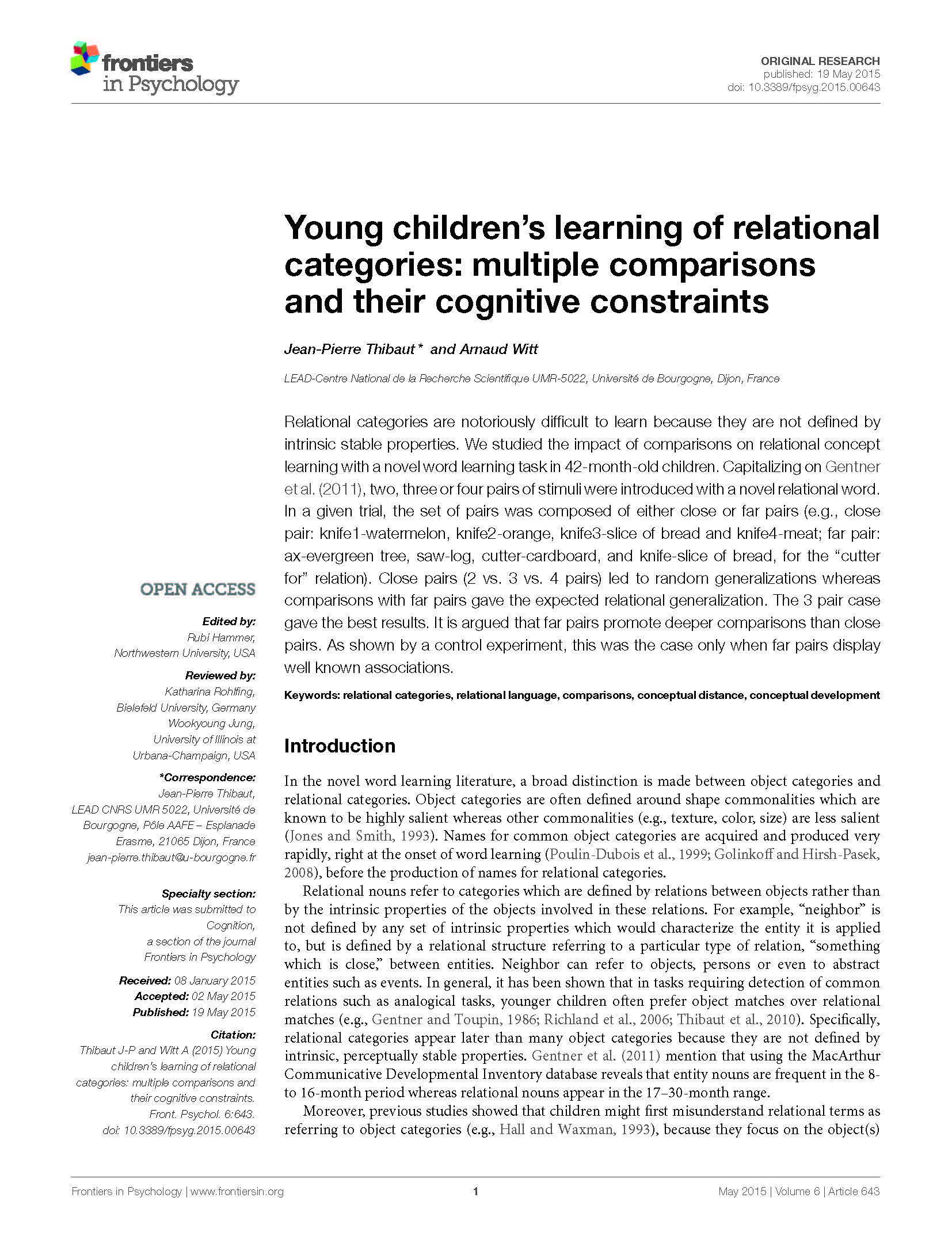Relational categories are notoriously difficult to learn because they are not defined by intrinsic stable properties. We studied the impact of comparisons on relational concept learning with a novel word learning task in 42-month-old children. Capitalizing on Gentner et al (2011), two, three or four pairs of stimuli were introduced with a novel relational word. In a given trial, the set of pairs was composed of either close or far pairs (e.g., close pair: knife1-watermelon, knife2-orange, knife3-slice of bread and knife4-meat; far pair: ax-evergreen tree, saw-log, cutter-cardboard, and knife-slice of bread, for the “cutter for” relation). Close pairs(2 vs. 3 vs. 4 pairs) led to random generalizations whereas comparisons with far pairs gave the expected relational generalization. The 3 pair case gave the best results. It is argued that far pairs promote deeper comparisons than close pairs. As shown by a control experiment, this was the case only when far pairs display well known associations.
Young children’s learning of relational categories: multiple comparisons and their cognitive constraints
